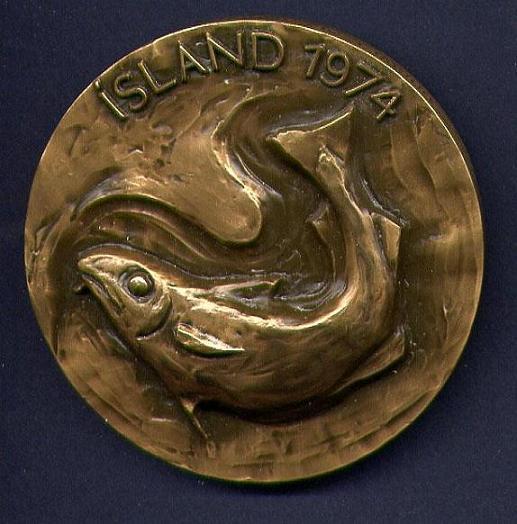Global Warming: Claptrap
Definition: Global Warming – gradual rise in the average surface temperatures of the oceans, earth and air to higher levels than ever before recorded.
FACTS: Daily temperature records were not maintained regularly before 1895. Reliable measurement and recording were still not available in most of the world until much later.
Based on sporadic, temperature readings and more rare CO² measurements for the past 110 years, some politicians with the help of “selective science” forecast a dire future for mankind. Details of the forecast have now been revealed. A synthesis of current academic studies, it was presented in February 2005 to the international conference on climate change at UK Meteorological Office headquarters in Exeter by its author, Bill Hare, of Potsdam’s Institute for Climate Impact Research, Germany's leading global warming research institute. Here are excerpts of the worst:
World temperatures are already 0.7C above the pre-industrial level. In the next 25 years - as the temperature climbs to the 1C mark, some ecosystems will start to feel stress. Tropical highland forests of Queensland, which contain a large number of Australia's endemic plant species, and the succulent karoo plant region of South Africa, for instance. In some developing countries, food production will start to decline, water shortage problems will worsen and there will be net losses in GDP.
When the temperature moves up to 2C above the pre-industrial level, expected in the middle of this century - within the lifetime of many people alive today - that serious effects start to come thick and fast, studies suggest. Substantial losses of Arctic sea ice will threaten species such as polar bears and walruses, while in tropical regions "bleaching" of coral reefs will become more frequent - when the animals that live in the coral are forced out by high temperatures and the reef may die. Mediterranean regions will be hit by more forest fires and insect pests, while in regions of the US such as the Rockies, rivers may become too warm for trout and salmon.
In South Africa, the Fynbos, the world's most remarkable floral kingdom which has more than 8,000 endemic wild flowers, will start to lose its species, as will alpine areas from Europe to Australia; the broad-leaved forests of China will start to die. The numbers at risk from hunger will increase and another billion and a half people will face water shortages, and GDP losses in some developing countries will become significant.
But when the temperature moves up to the 3C level, expected in the early part of the second half of the century, these effects will become critical. There is likely to be irreversible damage to the Amazon rainforest, leading to its collapse, and the complete destruction of coral reefs is likely to be widespread.
U.S. lawyers, environmentalists and their natural, political allies at home and abroad find it economically more attractive and parasitically mouth-watering to pursue the wealth created by the disciplined labor of others, than it would be to perform and honest day of labor themselves.
There are some severe problems for such politico-lawyers and their environmentalists, however. One should be very obvious to the average citizen:
With little more than 100 years of temperature data and all of that during only the current, 12,000-year warm period between ice ages, scare mongers would have us believe that they can forecast global conditions for the next hundred years. How arrogant! If your favorite scientist had details of only yesterday’s global temperature record, how accurate would his/her forecasts of a record high temperature be for tomorrow? less than 1/100 of 1 % (Statistically irrelevant)
A more severe obstacle, however, is well known to professional climatologists. Ice ages recur with regularity, but at an imperceptibly slow pace during millions of years. We are currently in an “interglacial” warm period called the Holocene between the previous and the next ice age. The Holocene has lasted some 10-12,000 years already (longer than several others). Nothing in climatology is absolute, however. During the Holocene there has even been a “Little Ice Age ” that devastated European crops. It is thought to have been caused by volcanic eruption. Volcanoes may produce more CO2 in a major eruption than mankind normally produces in a decade. More major volcanic eruptions can be expected.
Political Connotations: Human activity, primarily those connected with increased generation of CO2 are claimed to be the root cause of global warming. The most productive nation in the world (U.S.) is largely to blame. Widespread, industrial smog is visibly worse in Europe than in L.A. The U.S. spends more than any other country making air cleaner EVERY year. All this despite U.S. LAWYERS' fees (30 to 60 percent of the Superfund has gone to lawyers' fees and "transactions").
Are we going to listen to a political party dominated by LAWYERS with their “expert witness” scientists or are we going to heed real professionals familiar with a geological record of hundreds of thousands of years? Your call, of course.


1 Comments:
Favorite quote from Michael Crichton's STATE OF FEAR . .
". . For these same apes to imagine they can stabilize this atmosphere is
arrogant beyond belief. They can't control the climate. The reality is, they
run from storms." - Idaho Prof.
Post a Comment
<< Home